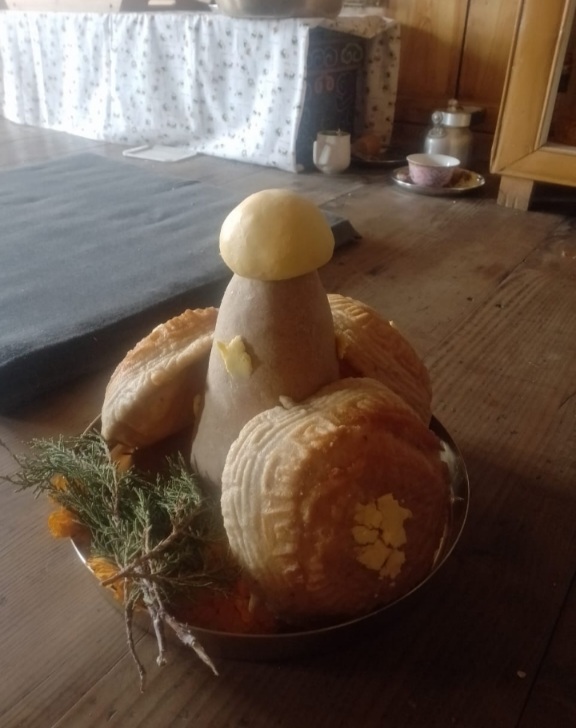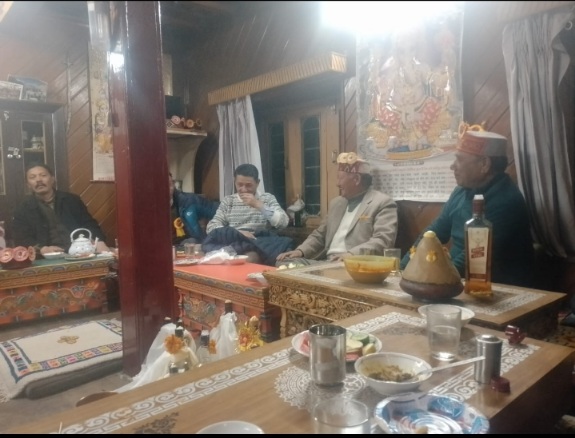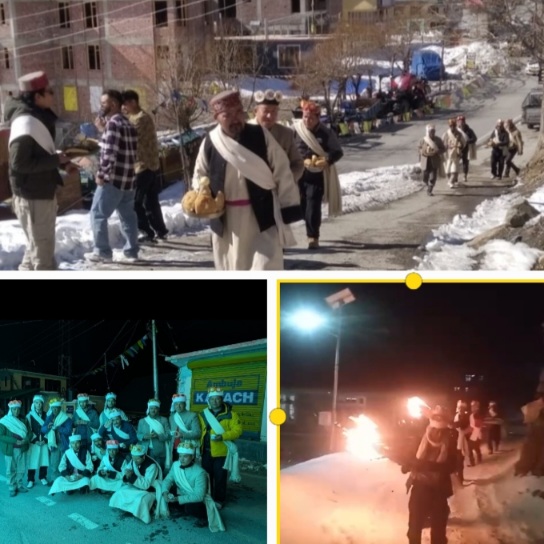Halda Festival Brings Frozen Lahaul Valley to Life.
Keylong/Shimla: The icy winds and snow-laden mountains of Lahaul found warmth and light today as the Halda festival took center stage. Villagers, holding flaming wooden torches or "mashals," gathered in a tradition that dates back centuries.
With prayers to their legendary King Raja Gepan, they sought blessings to ward off spirits and survive the harsh forces of nature in this once desolate, frozen land.
The celebration begins with an offering to Raja Gepan, followed by each family sending a member carrying a lit mashal.
At a common gathering point, the torches are placed upright and left to burn while rituals and prayers are performed.
In Gondhla, every man in the family participates, each bringing their own torch.
Before returning home, a unique cleansing ritual ensures no ghostly presence follows anyone inside. Only after this are they allowed to enter and share a festive meal.
On Halda, the community also sets up a sacred offering to Balraj (King Bali) – a round mound of pure ghee and sattu.
This is worshipped continuously from the night of Halda through the second, third, and even fourth day.
The ritual concludes when the villagers carry the "totu" (a sacred ball of sattu) to a designated spot, offering it to their deities.

Once the puja is done, they exchange parts of the totu among themselves, symbolizing unity and blessings said Himal Singh Thakur, a residentof Shashin in Sissu.

The celebrations don’t end there. The real fun kicks off when the village starts the “zon” tradition – a house-to-house feast, where the villagers take turns being hosted by one family for a night of dancing, singing, and merrymaking.
In the dead of winter, Halda isn’t just a festival; it’s Lahaul’s way of staying alive, connected, and kicking in the face of nature's harshest challenges.
And if the laughter and glow of mashals are anything to go by, the spirits of the Lahauli people are brighter than ever.







